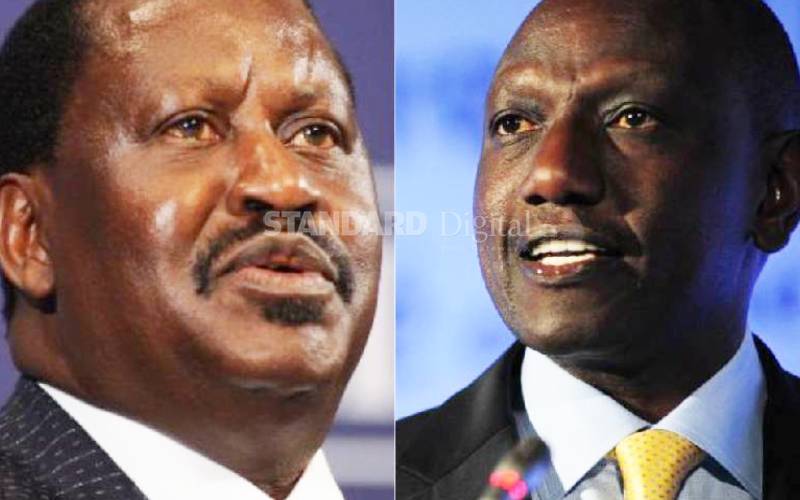×
The Standard e-Paper
Join Thousands Daily

Opposition leader Raila Odinga and Deputy President William Ruto.
The battle to control the electoral agency ahead of 2022 polls played out in Parliament yesterday when MPs voted to pass a Bill on recruitment of commissioners.